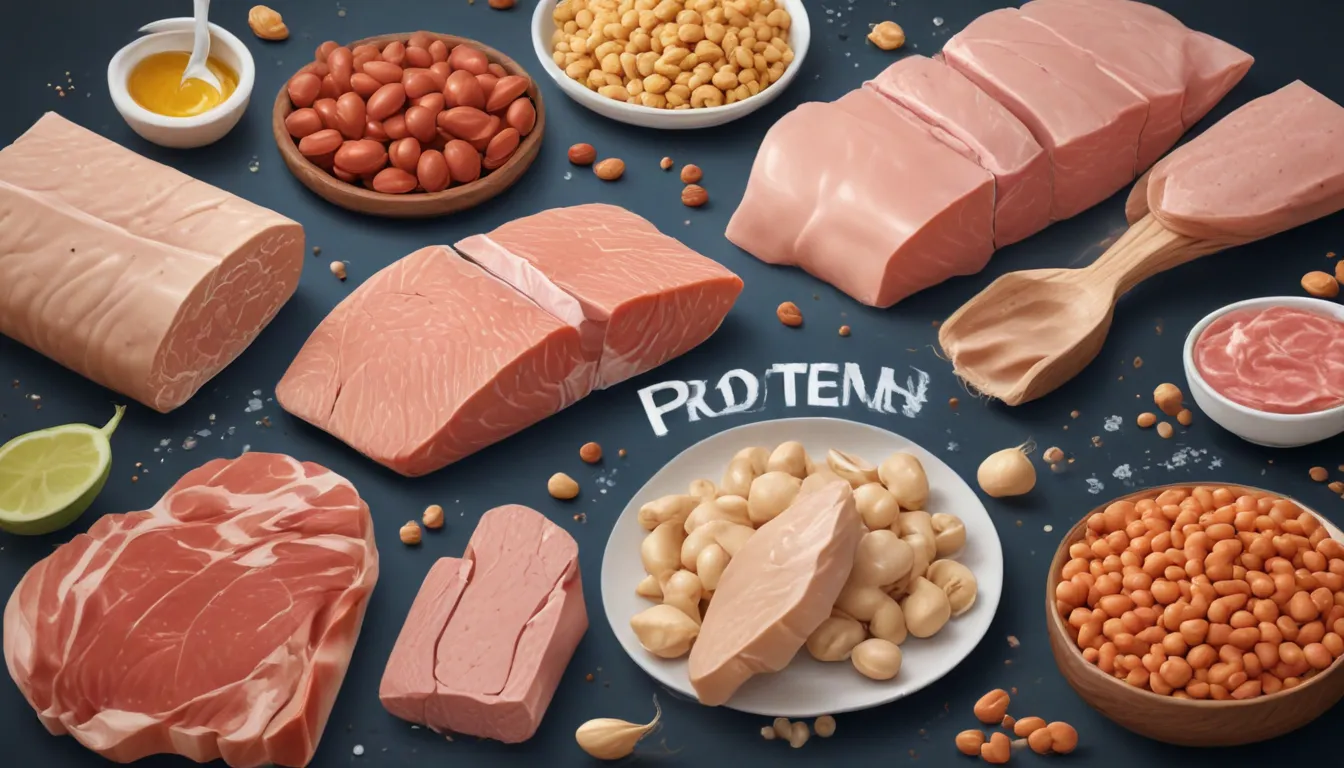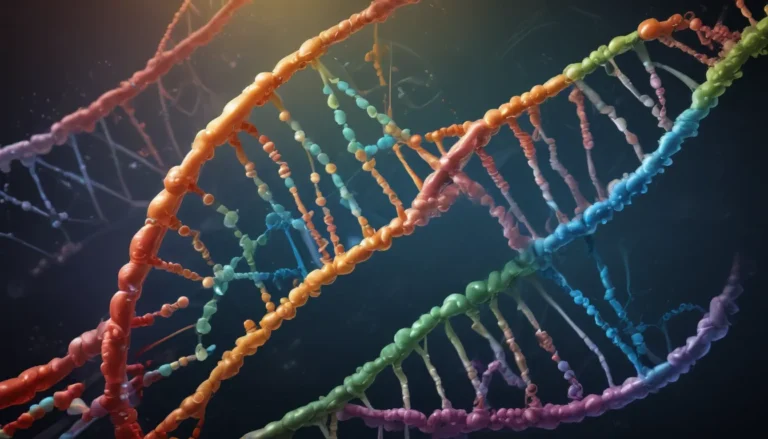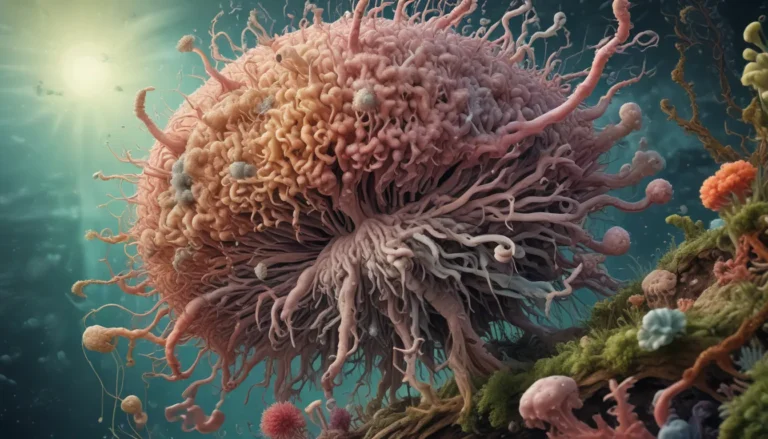A Note About Images: The images used in our articles are for illustration purposes only and may not exactly match the content. They are meant to engage readers, but the text should be relied upon for accurate information.
Protein is often hailed as the holy grail of fitness enthusiasts and dieters alike. But what makes this essential nutrient so vital for our bodies? These protein facts will enlighten you on the wonders of this miraculous molecule.
Quick Facts
- The human body is predominantly made up of protein, ranking just after water as the most abundant component of our mass.
- Proteins play a crucial role in forming muscles, bones, organs, skin, and nails, among other vital functions in the body.
- There are 20 amino acids that make up proteins, with 9 essential ones that need to be acquired through diet.
- Protein, along with fat and carbohydrates, is one of the three essential macronutrients that our bodies require for optimal function.
Essential Facts
- The term protein originates from the Greek word “proteios,” meaning “primary” or “holding the first place.”
- While the human body can produce 13 proteins, the remaining 9 must be obtained through dietary sources.
- Proteins are composed of long amino acid chains called polypeptides.
- The process of protein folding determines the function and purpose of a specific protein.
- The average lifespan of proteins in mammalian cells ranges from 1 to 2 days, varying from minutes to years.
- Protein is present in all cells of the human body.
- Fat provides nine calories per gram, while protein and carbohydrates offer four calories per gram.
- There are approximately 100,000 different types of proteins in the human body.
- Eggs contain the highest relative amount of protein among food sources.
- Protein deficiency can lead to various health issues, including kwashiorkor, immunodeficiencies, thinning nails and hair, muscle and joint pain, and weakness.
Interesting Details
- Proteins serve diverse functions in the body, including acting as enzymes that trigger chemical reactions, antibodies that support the immune system, extracellular proteins that send and receive signals, and structural proteins that provide stiffness to fluid elements in the body.
- Insects boast the best fat-to-protein ratio among different organisms.
- Keratin, a fibrous structural protein, comprises the majority of our hair, nails, and outer skin layer.
- Larger legumes, such as soybeans, contain more protein as they age and grow.
- Hemoglobin, a protein found in red blood cells, is responsible for transporting oxygen and eliminating waste products like carbon dioxide.
- Rhodopsin, a protein in our eyes, aids in vision by assisting in detecting light.
- Cannibalism historically had symbolic or religious connotations rather than dietary or survival reasons.
- Certain foods containing proteins often trigger allergic reactions due to the immune response to the protein structure.
- Plants and microorganisms can synthesize all 20 standard amino acids, while animals and humans must obtain 9 essential amino acids through diet.
- Tuna is among the fish species with the highest protein content, along with anchovies, salmon, halibut, and tilapia.
- Pumpkin and watermelon seeds are protein-rich snacks, offering significant protein content.
An Insight into Protein Consumption
Protein is indispensable for essential bodily functions, ranging from muscle growth and repair to supporting immune responses and vital chemical reactions. As the building blocks of life, proteins play a pivotal role in maintaining overall health and well-being. However, understanding the significance of protein consumption in the right amounts is crucial.
Consuming protein-rich foods, such as eggs, dairy products, meats, and plant-based sources like seeds and legumes, can ensure adequate protein intake. Yet, excessive protein consumption can strain the kidneys and liver, leading to potential organ damage and weight gain. Additionally, a rare genetic condition can cause adverse reactions to high protein consumption, highlighting the importance of moderation and balanced nutrition.
Proteins come in various forms, each with specific functions within the body, from enzymes that catalyze chemical reactions to structural proteins that provide support and rigidity. Even iconic characters like Sonic the Hedgehog and Pikachu find their roots in proteins, symbolizing the diverse roles these molecules play in biological processes.
In essence, protein serves as a cornerstone of human health, influencing physiological processes, structural integrity, and overall vitality. By incorporating a balanced diet rich in protein sources and maintaining moderation in consumption, individuals can harness the benefits of this essential nutrient while safeguarding their well-being for years to come.
Ensuring a well-rounded nutrition plan that includes adequate protein intake is vital for sustaining optimal health and vitality, making informed choices based on the valuable insights provided by these protein facts. Let’s embark on a journey of discovery and appreciation for the wonders of protein and its profound impact on our lives.






